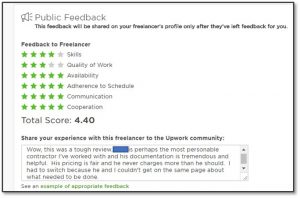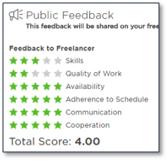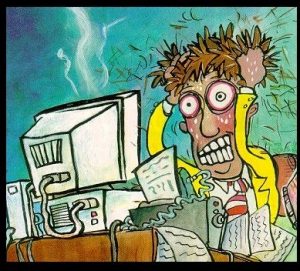Part 2, My Decision: Lying to Strangers to Protect Someone I Hardly Know
In Part 1 of this scenario, I ended the post saying that I’ll quit stalling and share my decision with you in my next post. Thanks to those who offered advice! Your views were split and I’m still deciding what to do as I type.

I wonder if my reluctance to give a poor review to the contractor I terminated is that I wonder if the problems were partly communications, not his abilities. My gut says, “no,” he really wasn’t on his game for my job and I owe it to others to be honest. I also want to be kind. So, here’s my actual review.

By the way, this whole process has opened my eyes to the phase, “not yet reviewed,” beside completed jobs. I suspect in some circumstances this may be a client’s way to avoid the unpleasantness of a bad review – not necessarily, just something I’ll factor in. My request: DO write reviews – you’re helping others, particularly the BEST performers who deserve to rise to the top… like Monica, the wonderful resource who helps me prepare and deliver these emails!





